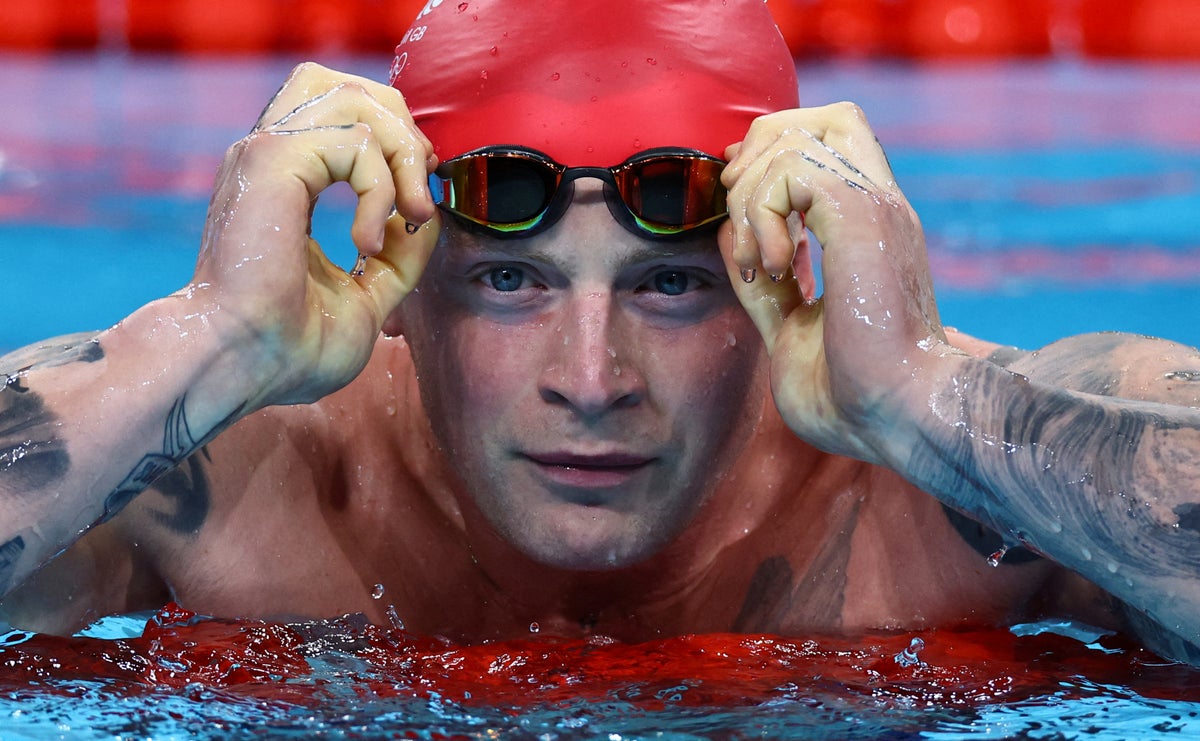
Support truly
independent journalism
As Team GB bid to add to their collection of medals, the very real threat of Covid threatens to derail hopes and dreams at the Paris Olympics.
Adam Peaty was 0.02 seconds away from a third successive men’s 100m breaststroke Olympic gold medal before being out-touched by Italian Nicolo Martinenghi. The Briton would later reveal he had been dealing with Covid after testing positive that morning, yet he refused to offer excuses despite spluttering as he left La Defense Arena.
Peaty could be content with a shared silver medal, yet others may not be so lucky, with Zharnel Hughes, a contender in the men’s 100m after bronze at last year’s World Championships in Budapest, detailing the meticulous process to avoid catching the virus.
“I’m pretty keen on my hygiene,” Hughes said. “I got into the apartment and said, ‘gents, let’s keep our hands clean, please’. Try to ensure we wash our hands.
“I walk around with a sanitiser and I have my mask as well. I encourage my teammates to do the same. At the dining halls, I use tissues to pick up any utensils I need to take out.
“I’m always using my mask, I’m always sanitising immediately after eating. When I get back to the apartment I always wash my hands. Hygiene is key. Not just my teammates, but everybody else to do the same.
“Team GB has ensured we’re taken care of with medical packs. Everything we need. My hat goes off to them.”
While Josh Kerr, the men’s 1,500m world champion, is equally cautious, knowing the margins could be tight in one of the most compelling races of the Games with defending Olympic champion Jakob Ingebrigtsen. Ahead of the lastest instalment of their gripping rivalry on the track, Kerr is relaxed about his health less than 48 hours before Friday’s first round.
“We’re a very lucky team to have so many support staff to control the controllables,” Kerr insists. “We get given our own personal packs, sanitisers, masks, we’re daily monitoring how everybody is feeling.
“There are places for people to quarantine if they’re not feeling great. The goal on this team is to allow people to compete as well as possible, putting extra precautions in place, we have a really good idea with what we’re doing. 2020 and 2021 has forced the hand with that.”
Kerr maintains Great Britain has got “lucky” so far, admitting it’s “not realistic” to expect everybody to compete at 100 percent.
The allure of the Olympics is the four-year cycle, the grandest of sporting stages and the tension transformed into elation or despair at the finish line.
Covid adds another layer of intrigue, too, with more speculation surrounding performances and a sense of what might have been following upsets.
“You can train eight years for something and not feel 100 percent on the day and that 100 percent will cost you 0.02secs,” Peaty reflected with immense maturity, acknowledging the trepidation athletes experience in the final hours before their moment of destiny.
“I had to go through a few things. I had to use the logistics of the team, because I was not 100 percent. I don't care though, I've raced and won against people that were not 100 percent.
"Those were the cards I was dealt, that's the man I am, there are no excuses, I tried to do the best I could do. You can't let the losses or the bad days go to your heart. You have to be able to go, 'yes, I'm not 100 percent, but I can still perform'. I still see that [silver] as a great performance.”






